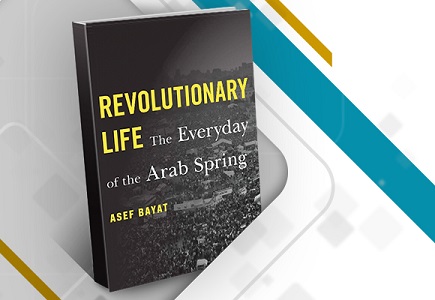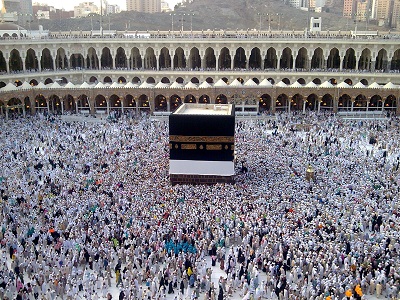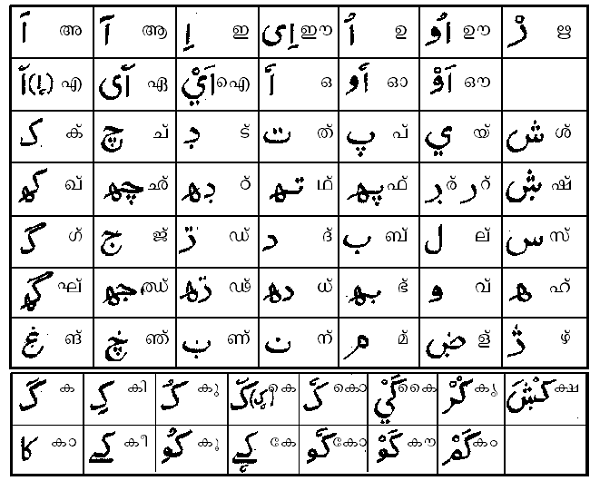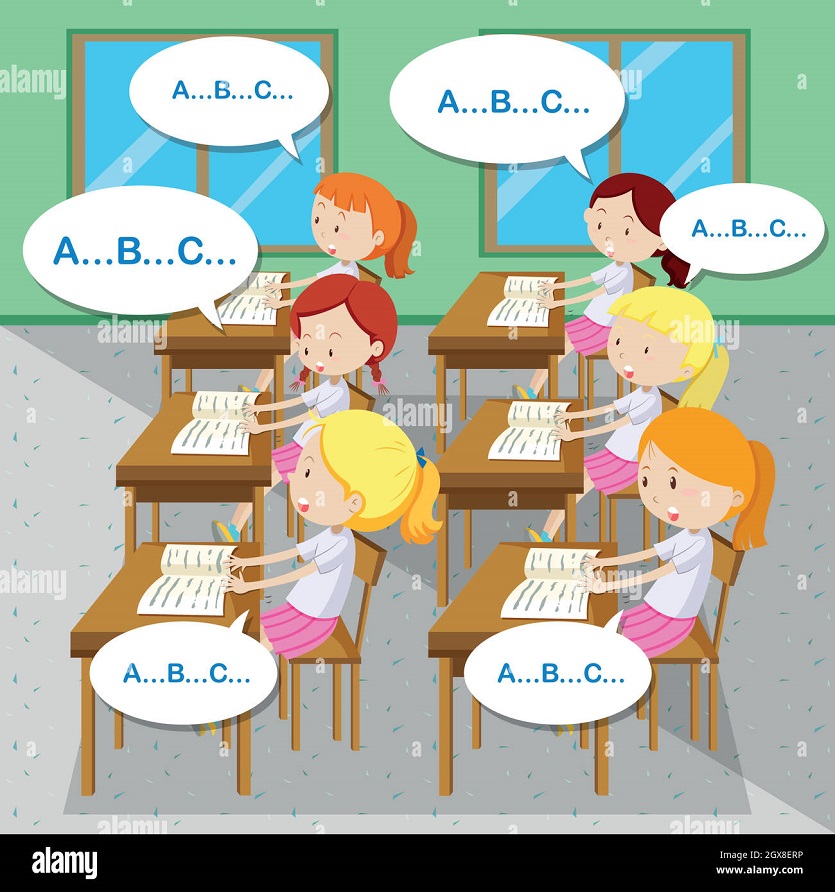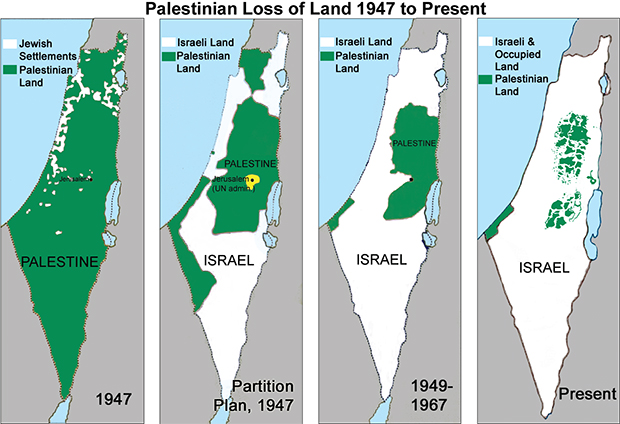
Arab Israel conflict started in the previous century, when the Jewish community stated demanding creation of a separate state exclusively for the Jews. The Head of the Jewish Agency, David Ben Gurion, declared the establishment of Israel as a new country in Palestine inhabited by Arab Palestinians in May 1948, also proclaimed by the United Nations. Since its inception the territory has remained a bone of contention between the Arab world and Israel or precisely the Palestinians and the Israelis as the former refuted all claims of the latter of establishing a separate state in their own land for the Jews. Both Muslims and Jews, claim to have ancestral rights over the land. They consider themselves to be the chosen ones and hence believe that they have an exclusive right over the holy, Promised Land. Various wars have been fought by the Jewish and Muslim forces time and again. But currently the blessed land is under the Israeli control and the Muslims in the land lead a subjugated life as their territories are occupied by the Jewish government. In 1948, the Palestinians have been fighting for their independence from an unjust rule, and invalid claimant of power in the land and have been struggling under adverse conditions since then. The Palestinians have time and again not only been betrayed by other international stakeholders, but the fellow Muslims, the Arab and other Muslim countries have shown inconsistent support throughout. The Arab world technically consists of 21 different countries, with only 1 tiny Jewish country i.e., Israel but this country overpowers its neighbours with its economic development, technological advancement, peace and stability. The region is demographically and geographically dominated by the Arabs exponentially but Israel is way ahead in being a crucial player in the global affairs. The Arabian territory is 650 times that of Israel and its population is 50 times that of the Israeli but still it lacks behind in military strength, diplomatic relations and scientific knowhow. The Arab world has faced Israel in four major military battles apart from smaller skirmishes but has not been successful in helping out the Palestinians to achieve independence. For a deeper understanding of the matter, comprehending the historical developments in the region is a pre requisite.
Nakbah/ First War of Independence: 1948
In November 1947, the United Nations voted to partition the British mandate of Palestine into two separate, Jewish and Arab states. The plan was rejected completely by the Arab states. The surrounding nations and Arab leadership in Israel motivated people to migrate from the land, promising them to return after ruining the Jewish lands in the holy war/ Jihad as soon as possible. The UN plan also led to clashes between the two communities. The Muslims were brutally attacked in the Arab village of Dayr Yasin in April 1948. The British were set to leave the lands in torment and failed to take a step to stop the violence. The Arabs took revenge by attacking a Jewish convoy, killing 78 people. Israel declared its independence on 15th may 1948, followed by the Egyptian, Jordanian, Syrian, Lebanese and Iraqi forces capturing a part of east Jerusalem, southern and eastern Palestine the next day. These areas were not mentioned to be divided by the United Nations. The Israelis, meanwhile, won control of the main road to Jerusalem through the Yehuda Mountains (“Hills of Judaea”) and successfully repulsed repeated Arab attacks. By early 1949 the Israelis had managed to occupy all of the Negev up to the former Egypt-Palestine frontier, except for the Gaza strip. Later until July 1949, Israel signed armistice agreements with the Arab states separately, fixing the temporary border with its neighbours. In the Arab world, this was the biggest catastrophe witnessed because more than 700000 Palestinians were displaced from their home and was thus this was called as Nakbah, whereas for the Israelis it is remembered as the First war of Independence.
Invasion of Sinai Peninsula: 1956
The Egyptian leader, Gamal Abdel Nasser was a staunch follower of Pan-Arabism and a vocal opponent of the state of Israel. In October 1956, he decided to nationalize the Suez Canal which was the most important route in reaching out to the east. France and Britain had been benefitting from the revenue generated, and its nationalization was in no way suited to them. Hence, they asked Israel to invade the Sinai Peninsula and nearby areas to pressurize Egypt. Israel was prohibited to use the canal and its southern port of Elat was blocked by Egypt. But due to its power within five days it captured thousands of prisoners and occupied most of the peninsula east to the Suez Canal. Israel opened its sea communication route and in December 1956 UN peace building troops were stationed in the region, Israel left the Sinai Peninsula in March 1957 and Egypt withdrew its blockade of the port of Elat.
Six Day War: 1967
In 1967 Syrian forces increased bombarding the Israeli villages from its position in the Golan Heights. Israel retaliated with bombing the Syrian fighter jets. Gamal Abdel Nasser saw this as a threat, and dismissed the UN troops, again blockaded the port of Elat and attacked through his air force and signed a mutual defence agreement with Jordan, but to no avail as Israel defeated them rapidly. After six days of fighting, Israel occupied East Jerusalem, Sinai Peninsula, Golan Heights, the West Bank and Gaza in June 1967. After 5 months, the United Nations asked Israel to withdraw its forces from the occupied land, although it had illegally established its first civilian settlement in the West Bank. This paved the way for more Israeli citizens to inhabit the occupied territory illegally. Currently, more than 500000 Israelis live in more than 130 settlements and about 100 outposts in the West Bank and East Jerusalem. The most important outcome of this war was that Israel became the sole controller of Jerusalem.
Yom Kippur War: 1973
On October 6, 1973 again a full-scale war was developed between Israel and Egyptian and Syrian forces. As its name suggests, it was fought on the holy day of Jews. While Egypt attacked across the Suez Canal, Syria attacked from the Golan Heights. The Arab forces were aggressive more than ever before, and Israel faced many casualties. But they retaliated by pushing in to the Syrian territory, and crossing the Suez Canal, encircling the Egyptian Third Army and hence reversing its losses. Cease fires soon followed up, both parties agreed to withdraw their forces and return prisoner of wars. Camp David agreement was signed between Egypt and Israel ending years of war between the two, Israel withdrew from the Sinai Peninsula and Egypt approved off the right of Israel to exist.
Oslo Accord: 1993
This was signed by the Palestinian Liberation Organisation leader, Yasir Arafat and the Israeli Prime Minister, Yitzhak Rabin in September 1993 in Oslo, Norway. The agreement divided the West Bank into zones for Palestinians and Israelis. The Israel forces held 61% of the territory. The accord created the Palestinian Authority which was to be held accountable for the security, education, health and other such affairs of the 18% zones in the West Bank inhabited by the Palestinians. PLO also recognized Israel’s right to exist and renounced violence and the idea of destruction of Israel. The Palestine Authority acts as an agent of Israel, suppresses uprisings and potential resistance. On the other hand, Israel continues to dominate in matters of border movements, air space, telecommunications, water supply and other crucial matters.
Gaza Seige: 2005
In 2005, Israel evacuated all the settlements in the Gaza strip, at the call of Prime Minister Ariel Sharon. In 2006, the Islamist party Hamas won Palestinian legislative elections. Months of fighting between Hamas’s militants and forces loyal to the secular nationalist party Fatah followed. Hamas took control of the Gaza Strip while Fatah, under PA president Mahmoud Abbas, maintained power in the West Bank.
This limited the import of all supplies including food, fuel and other goods in the strip. This blockade was imposed after mid 1990s on Gaza followed by three major attacks led by the Israeli forces in the region since then. Many thousands of people have been killed in the Israeli operations done in Gaza, not even sparing the children, women and elderly. Nearly all West Bank Palestinians have at least one relative in prison and nearly 40 per cent of all Palestinian males there have been in detention at some point. Hamas has been successful in killing only a few Israeli citizens; the number is equivalent to those Israelis who are killed during road accidents i.e., 35. Even the courts are biased and unfair, as Palestinians are not given a free trial and are governed under martial law whereas Israelis have a separate civil and criminal law, with flexible procedures available to the prisoners.
Middle East Plan: 2020
Trump has announced the Middle East Plan I order to redraw the boundaries around the occupied west bank. There has been no representation of the Palestinians in this regard. The Plan is headed to declare Jerusalem the undivided capital exclusively for Israel. Trump administration has already recognized it as Israeli capital in 2018. Large chunks of land around the Jordan valley will also be given to Israel. The current plan also recognizes Israeli control over the illegal, occupied settlements in the region. The plan will also nullify all previous treaties and negotiations like the Oslo Accords, as in them the pre 1967 Palestinian borders were recognized; now no such claim will be considered valid.
The plan also proposes the establishment of a new Palestinian territory, made up of different and distant areas connected through roads and tunnels, new territories are also suggested near the Egyptian border, connecting Gaza. The idea is to create a high- tech industrial zone I the area and providing a refined agricultural and residential space to the people. The plan also proposes that Israel should entirely control the Jordan Valley, which is claimed to be fundamental in maintaining the national security of Israel. This suggests that the entire strategic Israel-Jordan border will be under its control, allowing Palestinians to carry out their entrepreneurial affairs over there. The Palestinian Authority leader, Mahmoud Abbas has rejected the plan and has called it as the completion of the Balfour Declaration.
The Arab world seems to have forgotten the holy land of Palestine, there are mixed reactions to what is currently happening in the region. Some countries like Saudi Arabia, Egypt, Bahrain, the UAE, Oman, Qatar, and Morocco welcomed the plan and actually saw it as a vision of peace. There are however staunch opponents as well like, Jordan, Kuwait, Iraq, Tunisia and Algeria. This was also because of their own vested interest, rather than sympathizing with the Palestinian cause. The states like Sudan and Libya were silent on the issue as they were themselves in the political transitional phase. Countries such as Iran and Turkey openly criticized the plan, while various organisations in Pakistan and Afghanistan condemned the move. The various rebellious groups also opposed the plan heavily and planned to gain support of more people for the Palestinian cause.
Crisis 2021
It all began on April 13th, which was the first day of the holy month of Ramadan for the Muslims and the Memorial Day for Jews in the territory, as a day of honouring their martyrs, when the police entered the Aqsa Mosque and ensured that the loudspeakers were cut off, and so that the speech of the president was and the Jewish congregation was not interrupted by Muslims or their prayers. This was a petty incident but, within a few weeks tensions between Israel and Palestine escalated and desecration of the mosque, the holy month was followed. This was coupled by shutting down a much famous plaza outside the Damascus Gate which served as a gathering point for the Muslim youth during Ramadan by the Israeli police, to prevent meeting of huge assemblies of people. In order to reclaim the area, small skirmishes and nightly clashes which are common between the two parties ensued. The state did not take a step back, which resulted in rage amongst both the Palestinians for not being given access to their own land on one hand, and Israelis on the other who were hell bound on removing as many Arabs from the region as possible. The Arabs of the region posted the atrocities, forced evacuations from their houses and mob attacks on innocent drivers on social media. On 21st April, an extremist Jewish group, Lehava carried out a march in Jerusalem, chanting Death for Arabs and ambushing Palestinians on their way. The government seemed to be disinterested in dealing with the demonstrations and tense atmosphere of the holy city, but all this culminated in the court’s order supporting the eviction of Arabs from Sheikh Jarrah locality where residents had been living since times immemorial were being asked to abandon their own land for new Jewish settlers. This spurred the Palestinians, as they knew what it meant to be taken out of their own territory and now, they could not afford to be kicked out even further, without any reason. Constant protests, cancelling of Palestinian elections by Palestinian Authority president, Mahmoud Abbas and extensive outrage on social media highlighted the struggles the Muslims in the region were going through. On May 4, the last Friday of the holy month of Ramadan, Israeli police crossed all limits of disrespecting not only the Palestinians, Arabs, their enemies but also the entire religion of Islam and dishonoured the sacristy of the holy mosque that is one of the third most revered site in Islam. They entered the mosque with their shoes on, fired guns, used tear gas, stun grenades and rubber-tipped bullets into the mosque compound shortly after 8 p.m. the visitors to the mosque at the time could only retaliate with stones. But these men did not leave the mosque vicinity out of fear and tried their best to protect the mosque from ruthless Israeli authorities. Subsequently on May 10, the final ruling on the Sheikh Jarrah was due, and this was the same day when Jews celebrate their 1967 victory by marching in the Muslim Quarter of the Old City and they visit Temple Mount, which is adjacent to the Aqsa Mosque. Fearing clashes, the Supreme court order was postponed. But even this could not stop the clashes, as the police again entered the mosque with its grenades and guns and firing on people. The Jerusalem Day march was rerouted, but in vain as nothing could control the upcoming casualties. This conflict ended up in a cease fire only on 21st May. But as usual, the ‘clash between two parties’ resulted in 13 Israelis death while more than 256 Palestinians lost their lives, including 66 children and 40 women. The Israeli forces attacked 6 hospitals, residential buildings, 53 schools, and offices of esteemed media houses like Al Jazeera and The Associated Press. This is not just a loss of lives and property but the hard work of years together which would have been put in building these institutions. It is going to impact the patients, students, families and individuals emotionally. Countries as it always happens, condemned the escalation of tensions in the region. But no concrete step was taken by any of the Arab or Muslim country in retaliation of Israeli activities. US President, Joe Biden remained silent when the city was burning, and continued with the USA’s stand that ‘Israel has the right to defend itself’.
Way Ahead
It is worth noting that probably for the first time, in 2021 the tensions in Palestine have grabbed so much media attention. The sympathizers of Israel, the common public which perhaps did not know about the situation in detail for the first time had access to the realities through social media, viral videos and public statements of Palestinian individuals. This media spin, and people not buying Israel’s decades old rant of defending itself from terrorists was well highlighted by hundreds of public protests across borders. People in USA, UK, Ireland, Europe, Australia amongst other Muslim nations took out rallies in favour of Palestinians and against the brutal repression of the Israeli government against innocent civilians. As much as the Israeli state is becoming aggressive in its policies, the people across the globe are condemning it and are starting to question Zionism, its origin, need and development as a principle in the Jewish society.
Since decades media has been portraying the conflicts between the two as a rift between two equally capable and powerful parties, but the harsh reality stands out to be that Palestine does not have complete power over itself as it is surrounded by Israeli territories which block its access to resources on one hand, and are far developed because of the political stability they maintain in their regions on the other. Israel ensures that whatever commotion or unrest takes place it is in the land of the Arabs so that they face bare minimum losses. The fact of the matter is, that Palestinians do not have access to guns or grenades, tear gases and even don’t have formal police for their area. Any war or a battle takes place between two parties of equal footing, but Palestinians are an occupied people, they can just use their voices of dissent to register their protest and use whatever resources they have to the best of their abilities to defend themselves from oppression. The silver lining is that these facts are coming across to people, are being discussed in the public domain and the discriminations, atrocities meted out by Israeli administration are being questioned to some extent now.
It is important to realize that for the Palestinians it is a struggle for dignity, sovereignty, freedom a fight for attaining peace, self-rule and independence. They are an occupied people, and Israel is the oppressor or the occupier, as it is commonly known, Palestine is the largest open prison in the world today, the only country on the globe to still be exposed to colonial rule. It has been more than 70 years that the people have been living under an authoritarian outside power’s rule which has been encroaching upon their land, resources, political system and intruding in their everyday lives. Unfortunately, Palestinians have been deprived of their fundamental needs like access to internet, proper schooling etc., the sudden army raids in houses, the security checks, the restriction on free movement, trade and other such things is disheartening. But it is only the will power of these people who still have the courage to dream of the day when they will be free and independent. It would have been much easier for them if they would have escaped to far off lands, set up new livelihoods in fear but they have chosen the less treaded path, the tougher road on which their feet get injured by thorns daily but, they rise and get up to move ahead every time they fall down.
On the contrary, for the Jews in Israel, there are various points of view which float in the society, some perceive all Arabs and Muslims as their enemies and they believe they must be shunned out of ‘their holy land’ and that only they have the legitimate right to reside in the ‘Promised Land’, for liberals the two- state solution where both live independently as separate nations is the road that must be taken and for yet others, maintaining peace via living together in one country as a unit of diverse groups is the best way out. We can talk about various solutions, but the key lies with the governments, the political powers and the international players. The irony is that in this region the real stakeholders are left out in their own decisions, and those from outside become the power holders, which actually happened in 1948 and has been the norm since before and after the period.
Unfortunately, every nation in the Arab world is thinking for its own vested interests. Lack of political will, fragmentation of power, disunity among the nations and close relationships with the Israeli-American nexus has made the road to Jerusalem even more difficult for the Palestinians. The Arab Israel conflict has existed for years now but the main issue of occupying the Palestine territory still remains the same. Although the international community is not rendering any help, but any ruthless rule is bound to come to its inevitable end. Palestine is destined to be free, sooner or later.
REFERENCES
• https://www.nytimes.com/2021/05/15/world/middleeast/israel-palestinian-gaza-war.html
•https://www.business-standard.com/article/international/media-demand-israel-explain-destruction-of-news-offices-in-gaza-121051600037_1.html
• https://interactive.aljazeera.com/aje/2020/the-failed-deals-of-the-century/index.html
• https://scroll.in/latest/995318/expect-significant-de-escalation-in-conflict-joe-biden-tells-benjamin-netanyahu
• http://arabcenterdc.org/policy_analyses/the-sheikh-jarrah-intifada-vital-lessons-for-president-biden/
• https://www.history.com/topics/middle-east/oslo-accords
